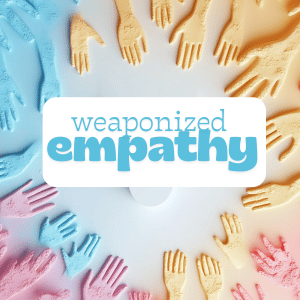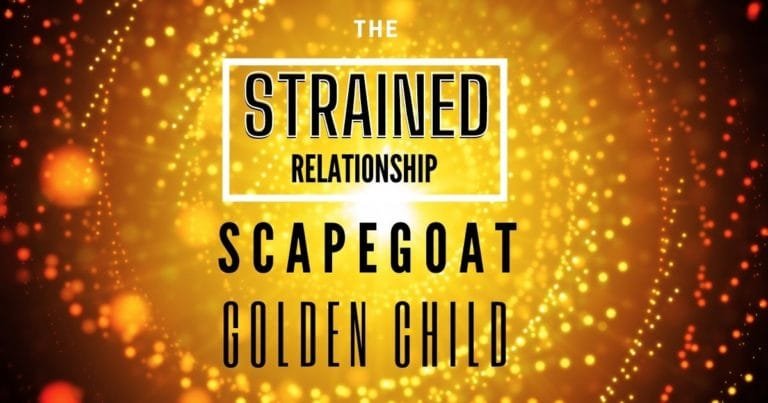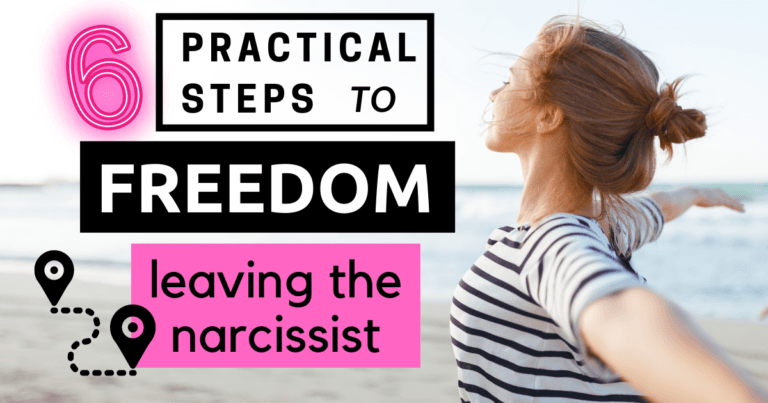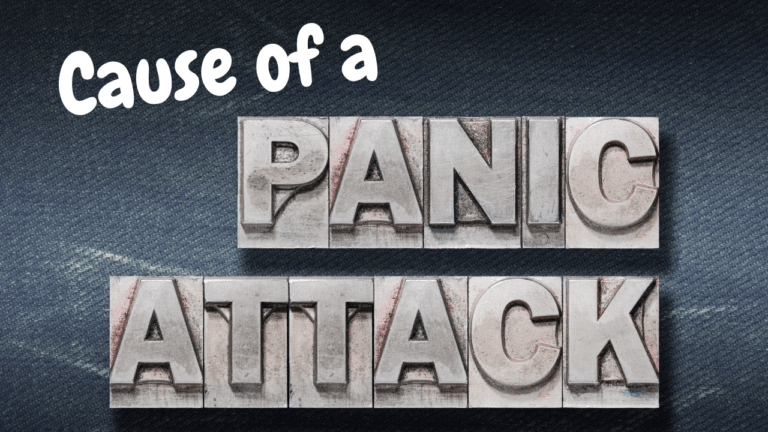Weaponized Empathy
Have you ever wondered why it was you? Why, out of everyone he could have chosen, the narcissist in your life zeroed in on you specifically? If you’re someone who prides yourself on being understanding, empathetic, and compassionate, the answer might be more calculated than you ever imagined.
In our latest podcast episode, we dive deep into one of the most painful truths about narcissistic abuse: your empathy wasn’t your weakness. It was his weapon. And he knew exactly what he was looking for from the very first moment he met you.
Related: 84 Signs of Fake Empathy in Your Relationship
The Empathy Signature: What Makes You Visible to Predators
There’s a certain type of woman that narcissists and abusers can spot immediately. She doesn’t wear a sign or announce herself, but somehow they just know. She’s the one who stops to help strangers, remembers everyone’s birthday, and can sense when something’s wrong before anyone says a word. She gives second chances, third chances, and sometimes loses count because she genuinely believes people can change.
This woman has what we call an empathy signature. It radiates from everything she does: the way she listens without interrupting, how she makes excuses for other people’s bad behavior, the automatic apology that leaves her lips even when she’s done nothing wrong.
And abusers? They’re hunting for exactly this signature.
What most people don’t understand is that narcissists don’t randomly stumble into relationships. Their targeting is strategic, calculated, and disturbingly effective. From the very first interaction, they’re testing you. That story about their difficult childhood? It’s a probe. The way they “accidentally” overstep a boundary and watch your reaction? That’s data collection. When they share something deeply personal way too soon and you respond with compassion instead of appropriate caution? They just got their confirmation.
You thought you were building connection. They were building a file on your vulnerabilities.
Why Empathy Makes You Vulnerable
Empathy is literally the ability to understand and share the feelings of another person. In healthy relationships, it’s the foundation of intimacy and connection. But in the hands of an abuser, your empathy becomes the very mechanism of your entrapment.
Think about what empathy makes you do. It makes you give people the benefit of the doubt. It makes you try to see situations from their perspective. It creates in you an almost compulsive need to understand why someone behaves the way they do.
Every time he does something hurtful, your empathetic nature immediately goes to work. You start constructing explanations: his mother was cold, his father was absent, he’s been hurt before, he’s struggling with work pressure. Maybe he didn’t mean it that way. Maybe you misunderstood. Maybe you’re being too sensitive.
Your empathy just transformed his abusive behavior into something understandable, forgivable, even something you feel guilty about. You went from victim to emotional detective, trying to solve the mystery of why he hurt you instead of addressing the fact that he hurt you at all.
This is the empathy trap, and it’s devastating because it uses your best quality against you.
Listen to the Podcast Episode Here:
Ep. 105 Weaponized Empathy: 7 Shocking Ways Narcissistic Abusers Target Compassionate Women
What Made You the Perfect Target and Why It Wasn’t Your Fault
The Sob Story Strategy: How It All Begins
Almost every abusive relationship starts with what we call the sob story strategy. He opens up to you, usually way too quickly, about his painful past. The ex who broke his heart. The family who never understood him. The world that’s been so unfair to him.
What does your empathetic heart do? It aches for him. It wants to be different. It wants to be the one who finally sees him, values him, loves him the right way.
Congratulations. You just accepted a job you never applied for: healing a man who has no intention of getting better.
The sob story serves multiple purposes. First, it creates instant intimacy. He’s sharing his vulnerabilities with you, which feels like trust and connection. Second, it establishes him as a victim in your mind. This becomes crucial later when he’s actively harming you because you’ve already accepted the narrative that he’s the one who’s been hurt.
Third, and this is the most insidious part, it sets up a dynamic where you’re constantly making allowances for his behavior based on his past trauma. He gets a free pass on accountability because, well, you know what he’s been through.
Your empathy told you this was a man who needed understanding. What you couldn’t see yet was that this was a man who would exploit that understanding at every turn.
The Cycle of Compassionate Captivity
Once the relationship is established, your empathy becomes the chain that keeps you locked in place. Here’s how the pattern unfolds.
He does something hurtful. Maybe he criticizes you in front of friends. Maybe he “forgets” plans that were important to you. Maybe he gives you the silent treatment for days. Your initial response is hurt, which is normal and healthy.
But then your empathy kicks in. You start thinking about his stress at work. You remember that story he told about his critical parent. You consider that maybe you’re expecting too much. Maybe you need to be more understanding. Maybe if you just loved him better, he wouldn’t act this way.
So instead of holding him accountable, you excuse him. You might even apologize to him. You definitely blame yourself at least partially.
This reinforces to him that your empathy is exploitable. He learns that he can hurt you, and not only will you forgive him, you’ll actually take on the emotional work of explaining to yourself why he did it. You’ll manage your own expectations downward. You’ll convince yourself that you’re asking too much.
The cycle repeats. Each time, you dig a little deeper into justification. Each time, your empathy works harder to make sense of what’s happening. Each time, you become more convinced that leaving would be abandoning someone who needs you.
This is compassionate captivity. You’re not staying because you’re weak. You’re staying because your strength, your empathy, your compassion has been turned into a prison.
The “I Can Fix Him” Phenomenon
For deeply empathetic women in abusive relationships, a savior complex often develops. It’s not about ego. It’s about a fundamental belief that everyone deserves compassion, everyone has potential for growth, everyone can change with the right support.
In healthy contexts, these beliefs are beautiful. In an abusive relationship, they’re lethal to your wellbeing.
You start to believe that you’re the key to his transformation. If you can just love him enough, understand him deeply enough, be patient long enough, he’ll heal. He’ll become the man you know he can be. Those glimpses you see sometimes, when he love bombs you or has a moment of clarity, become evidence that change is possible.
So you stay. You tolerate. You excuse. You explain. You try harder.
What you don’t realize is that he’s not changing because he doesn’t want to change. The current situation works perfectly for him. He gets his needs met. He faces no real consequences. Your empathy ensures that he always has an excuse and you always have hope.
You can’t fix someone who doesn’t believe they’re broken. You can’t heal someone who uses your compassion as a shield against accountability.
Red Flags That Someone Is Targeting Your Empathy
There are specific warning signs that someone is targeting your empathy, and they might seem sweet or might seem like connection building, but they’re actually manipulation tactics.
He shares intensely personal information very early in the relationship. Normal emotional intimacy builds gradually. This rapid sharing is designed to make you feel special and trusted, creating what’s called trauma bonding.
He positions himself as different from other men, often by criticizing them. “I’m not like those guys who just want one thing. I actually care about who you are as a person.” This appeals to your empathy because it makes you want to validate that he is indeed different.
He tests your boundaries in small ways and watches how you respond. Does he push for more time than you offered? Does he ask for favors before the relationship really warrants it? Does he ignore a “no” and see if he can change your mind? These are empathy tests.
He creates situations where you feel sorry for him. His car breaks down. His roommate is terrible. His job is awful. His family doesn’t appreciate him. He’s always the victim of circumstances, and your empathy makes you want to help, support, rescue.
He compliments your empathy specifically. “You’re so understanding.” “You really get me.” “I can talk to you about anything.” While these seem like compliments, they’re actually confirmation that he’s found what he was looking for.
The Devastating Cost of Weaponized Empathy
Over time in an abusive relationship, something happens to your empathy that people don’t discuss enough, and it’s one of the most painful aspects of recovery.
Your empathy becomes depleted. You’ve spent so much energy trying to understand him, making excuses for him, emotionally supporting him, that you have nothing left for yourself. You stop checking in with your own feelings. You stop trusting your own perceptions. You become so focused on his emotional state that you lose track of your own.
Your empathy becomes misdirected. You’re pouring compassion into someone who’s actively harming you while neglecting the person who actually needs your empathy most: yourself. You would never tolerate watching someone treat your friend the way he treats you. But your own suffering? That somehow seems more acceptable.
Your empathy becomes distorted. You start to believe that real love means unlimited tolerance. That real compassion means no boundaries. That being a good person means accepting whatever treatment comes your way without complaint.
This is the true cost. It’s not just that he’s hurting you. It’s that your most beautiful quality, the thing that makes you who you are, is being corrupted. Your empathy is being taught that its highest expression is self abandonment.
Understanding Changes Everything
If you’re recognizing yourself in these patterns, that recognition itself is powerful. You’re not crazy. You’re not imagining things. You’re not overreacting. What you experienced was real. The way your empathy was used against you was real.
Understanding the mechanism doesn’t immediately fix the problem, but it does something equally important. It takes away the mystery. It removes the question of “what’s wrong with me?” and replaces it with “now I see what was actually happening.”
You were targeted specifically because of your best qualities. Your empathy isn’t broken. It was systematically exploited. There’s a massive difference between those two things. One is a flaw in you. The other is a crime committed against you.
You’re Not Alone
The comments section of our website is filled with women sharing almost identical stories. Different names, different cities, different details, but the same devastating pattern. Empathetic woman meets charming man. He love bombs her. She feels special. Then slowly, methodically, he uses her own compassion to trap her.
This isn’t happening because empathetic women are weak or stupid or broken. It’s happening because there are people who view empathy as an exploitable resource rather than a beautiful human quality. And they’re remarkably good at finding and targeting it.
The women in our community who are healing, who are rebuilding, who are learning to trust themselves again, they all started exactly where you are right now. With awareness. With that moment of clarity where everything suddenly makes sense.
That moment you’re having right now? That’s the beginning. Not the end. Not the solution. But the beginning of understanding yourself differently. Of seeing your empathy not as the thing that destroyed you, but as the thing someone else weaponized.
You didn’t hand them a weapon. They turned your strength into one.
Listen to the full episode to understand the complete psychology behind why narcissists target empathetic women and what this means for your journey forward.
Related Episodes:
- Episode 104: Triangulation and How Narcissists Use Third Parties Against You
- Episode 103: The Awakening – How Narcissistic Abuse Patterns Are Embedded in Every System Women Face
Additional Reading
Psychology research breakthrough suggests narcissists are capable of empathy
The dark side of empathy in narcissistic personality disorder









it’s interesting that this is presented as man is the abuser and woman is the victim.
what’s being described here is almost word for word what I experienced from a female partner.
this reinforces a false narrative that men don’t experience domestic violence and/or behaviour like this.
and people wonder why men take their own lives in the numbers that they do. it’s because nobody listens when they talk about this, if they ever understand that what they’ve experienced was abuse
You’re right that these behaviors are not limited to one gender. Psychological abuse, coercive control, and manipulation can be carried out by anyone, and men absolutely experience it too. When a man goes through it, there’s an added barrier because many don’t have a language for it and often aren’t taken seriously when they try to explain what happened.
The topic here isn’t meant to say “men are abusers and women are victims.” It’s describing a pattern of behavior. Patterns don’t belong to a sex. What differs is how society reacts afterward. Women are more likely to be recognized as victims. Men are more likely to be dismissed, minimized, or even blamed, which can leave them isolated and confused about what they lived through.
So if what was described matched your experience, that actually reinforces the point that abuse is defined by conduct, not by the gender of the person doing it. Anyone who recognizes themselves in it deserves to be heard and taken seriously.
Conversations about one group’s experiences aren’t meant to erase another group’s experiences. They’re meant to make the behavior visible so more people, including men, can identify it and understand that what happened to them had a name.